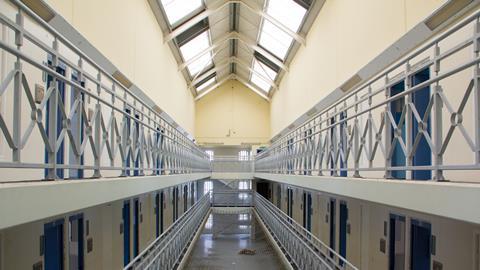Offenders who might have received a short custodial sentence will instead be punished in the community under reforms announced by the lord chancellor yesterday to free up prison space.
The prison population is nearly double the level it was three decades ago due to significant increases in the number of unconvicted prisoners awaiting trial and the recall population, Alex Chalk told the House of Commons last night.
In measures to ensure enough prison places for the most dangerous offenders, the prison service will be allowed to release lower level offenders on licence up to 18 days early. The government will legislate for a presumption that custodial sentences of less than 12 months will be suspended – offenders will instead ‘repay their debt’ in the community, such as scrubbing graffiti off walls. Discounts could be extended to encourage early guilty pleas. The government has also put a ‘down payment’ of £30m to acquire land next year for new prisons.
Richard Miller, the Law Society’s head of justice, said there were advantages and disadvantages to the measures proposed by Chalk yesterday. The prison space crisis is one symptom of wider problems across the justice system, he said. 'Record backlogs of cases leaving victims and defendants waiting to be heard, crumbling courts and a shortage of judges and lawyers all reflect the urgent need to fund justice.'
The Magistrates' Association welcomed measures to reduce the use of short-term prison sentences but chair Mark Beattie said two factors in particular were critical: expanding the range and availability of community sentence options, and greater resources for the probation service to advise magistrates and manage offenders in the community.
Tyrone Steele, interim legal director of Justice, a legal thinktank, said: ‘The current use of short sentences is a significant contributor to the prison crisis, serving to cut people off from support without offering meaningful opportunities for change. We therefore welcome the justice secretary’s announcement to row back from the use of damaging and counterproductive short sentences, and look forward to scrutinising the detail to ensure it works.’
The House of Lords justice and home affairs committee, which is conducting an inquiry on community sentences, is holding an evidence session with Chalk next week.
Committee chair Baroness Hamwee said: 'If community sentences are going to be used more widely, it is essential that services for treatments to address offenders’ mental health and addiction problems, tailored to each individual, are widely available. We have heard evidence of their underfunding. The Probation Service plays a key role in the delivery of community sentences. We have also heard evidence of the challenges facing the service, including problems with understaffing and recruitment.'
This article is now closed for comment.




























7 Readers' comments